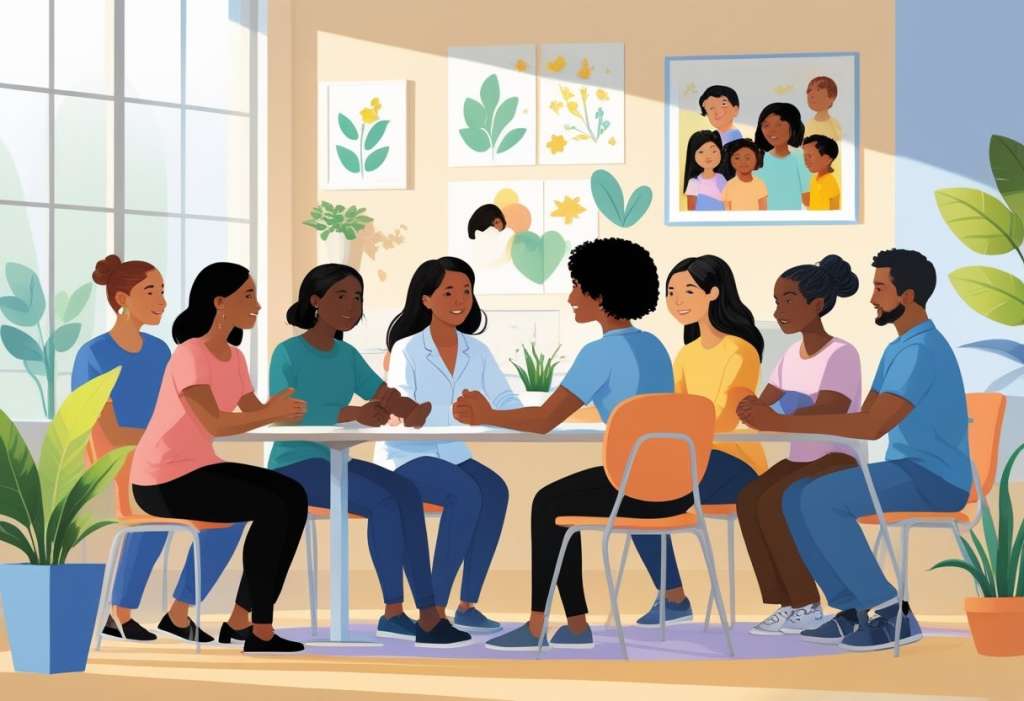The world of adoption training is undergoing significant transformation with the introduction of trauma-informed approaches. LEAF Wraparound and the Fear to Love prep course are at the forefront of this evolution, setting new standards in preparing adoptive families through comprehensive and compassionate training. By focusing on trauma-informed care, these programs emphasize the importance of understanding and addressing the unique emotional needs of adopted children.

LEAF Wraparound provides adoptive parents with love-based, intensive support, tailored to nurture and guide through trauma-informed methods. This initiative empowers families to support their children effectively, bridging gaps often experienced in traditional adoption training. Meanwhile, the Fear to Love course enhances this approach by building a framework for parents to transition from anxiety to connection, cultivating a nurturing environment for healing and growth.
Together, these programs are reshaping the landscape of adoption preparation. They equip families with the skills and empathy needed for successful integration, ensuring the well-being of both parents and children. By adopting these approaches, families can redefine their adoption journeys, creating harmonious and resilient relationships.
The Importance of Trauma-Informed Adoption Training
Effective trauma-informed adoption training can greatly enhance the success of adoptive families by addressing trauma-related challenges and equipping parents with vital skills. Programs like LEAF Wraparound and the Fear to Love prep course play a crucial role in preparing adoptive parents for the complexities of trauma’s effects on children.
Understanding Trauma in Adoption
Adoption often involves trauma that can significantly impact a child’s development. Children might have experienced neglect, abuse, or other forms of trauma before their adoption. These experiences can influence their emotional and behavioral responses, making it essential for adoptive parents to understand trauma’s implications.
Without a trauma-informed perspective, parents may misinterpret behaviors, leading to ineffective responses. Training programs provide insights into how trauma can manifest and offer strategies to support healing and resilience. Emphasizing the effects of trauma prepares parents to navigate challenges with empathy and knowledge, fostering a supportive environment for their children.
Challenges Faced by Adoptive Families
Adoptive families frequently encounter unique hurdles when parenting children with traumatic pasts. Common challenges include managing unexpected behaviors and fostering emotional connections. Children may experience difficulties with trust, attachment, and self-regulation. These challenges require adaptive parenting techniques and strong support networks.
A lack of trauma knowledge can exacerbate these challenges, leading families to feel overwhelmed. Trauma-informed adoption training equips parents to address issues constructively, promoting family stability. By understanding trauma’s impact, families can cultivate patience and implement attachment-focused strategies that nurture positive family dynamics and resilience.
Benefits of Evidence-Based Preparation
Programs like LEAF Wraparound and the Fear to Love prep course offer evidence-based frameworks that can significantly benefit adoptive families. These programs focus on developing practical strategies for nurturing children affected by trauma. They highlight the importance of creating safe spaces and providing consistent support as core elements for promoting emotional growth.
Evidence-based training reduces the risk of adoption disruptions by preparing parents for realistic experiences. Families are better positioned to foster attachment, manage challenging behaviors, and encourage healing. Training also emphasizes self-care for parents, acknowledging the emotional toll of adoption, and stress management.
By adopting a structured, informed approach, trained families are more likely to achieve successful outcomes, creating a positive environment for the entire family.
How LEAF and Fear to Love Are Transforming Adoption Preparation
LEAF Wraparound and the Fear to Love prep course are setting new benchmarks in trauma-informed adoption training. These programs equip parents with insightful strategies, placing an emphasis on emotional support and behavioral understanding to foster healthier family dynamics.
Overview of the LEAF Wraparound Program
The LEAF Wraparound Program focuses on providing holistic support to families through its comprehensive approach. It integrates various resources and services to help parents understand and manage the complexities of adoption trauma.
This includes access to counselors, support groups, and educational workshops. Using these resources, parents gain valuable insights into the effects of trauma on child behavior. Families are encouraged to build connections by focusing on empathy and understanding, improving both parental and child experiences.
Key Features of the Fear to Love Prep Course
The Fear to Love prep course offers workshops with practical strategies for addressing trauma-related behaviors in adopted children. Emphasizing emotional intelligence, the course teaches parents to connect with children on a deeper level.
Topics include communication techniques, stress reduction, and methods to nurture a sense of security. Each module is designed to create an environment where children feel safe and understood. Parents learn to shift from frustration to a mindset focused on nurturing and support.
Collaborative Approaches for Lasting Change
Both programs leverage collaborative strategies to effect sustainable change in adoption preparation. They bring together experts in trauma and child psychology to deliver training sessions that are adaptable to each family’s unique needs.
Workshops often include role-playing and interactive sessions that encourage communication and understanding within the family unit. By fostering collaboration among parents, professionals, and communities, these initiatives create a supportive network that extends beyond the initial training phase.
Success Stories and Measurable Outcomes
These programs have shown positive results, with families reporting improved behavior and stronger emotional connections with their adopted children. Anecdotal success stories highlight transformations in children’s adaptability and overall well-being.
Statistics from surveys indicate increased parental confidence and decreased levels of stress and conflict. This data underscores the effectiveness of the trauma-informed methods employed by LEAF and Fear to Love, serving as a testament to their impact on adoption preparation.








